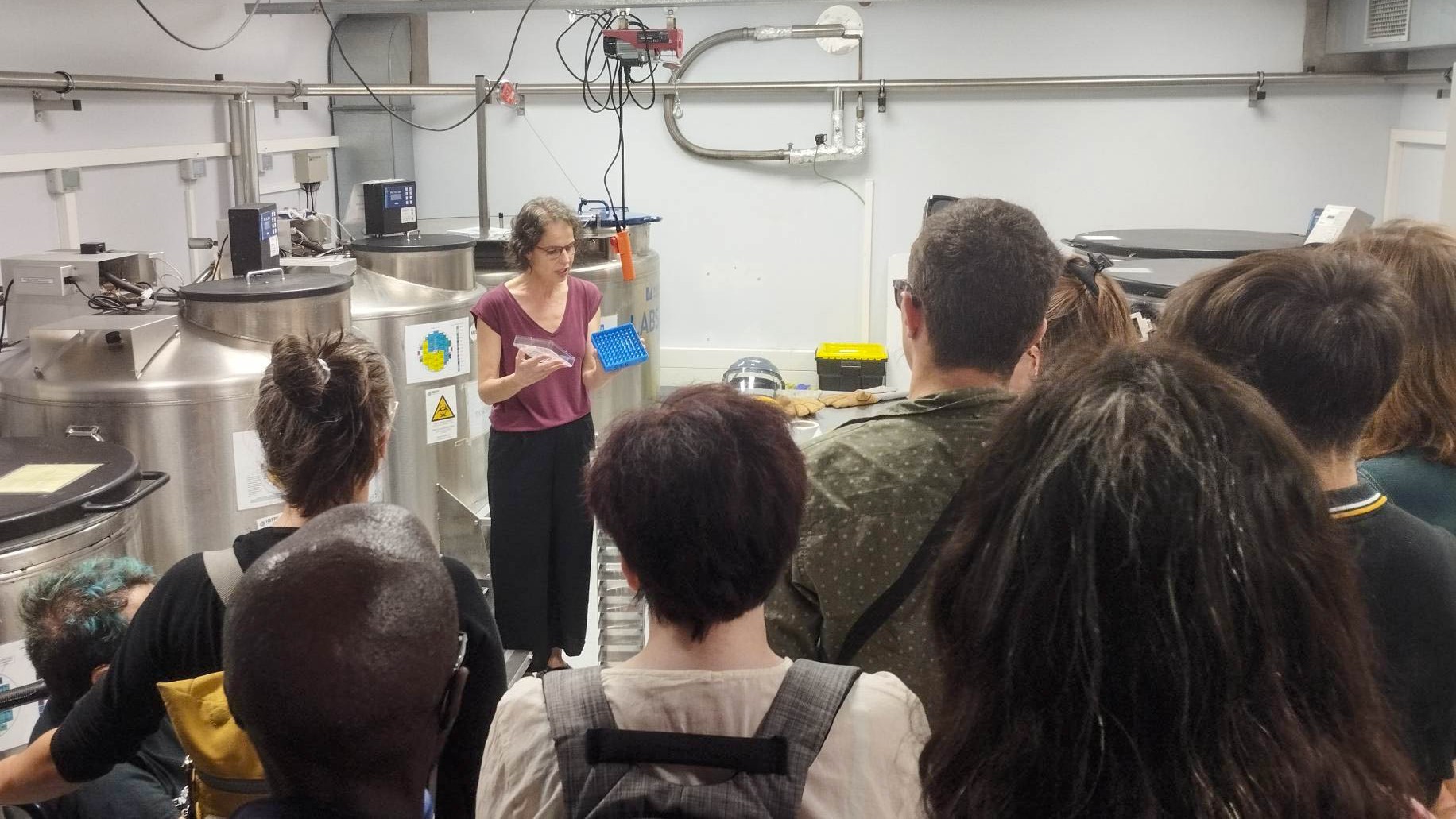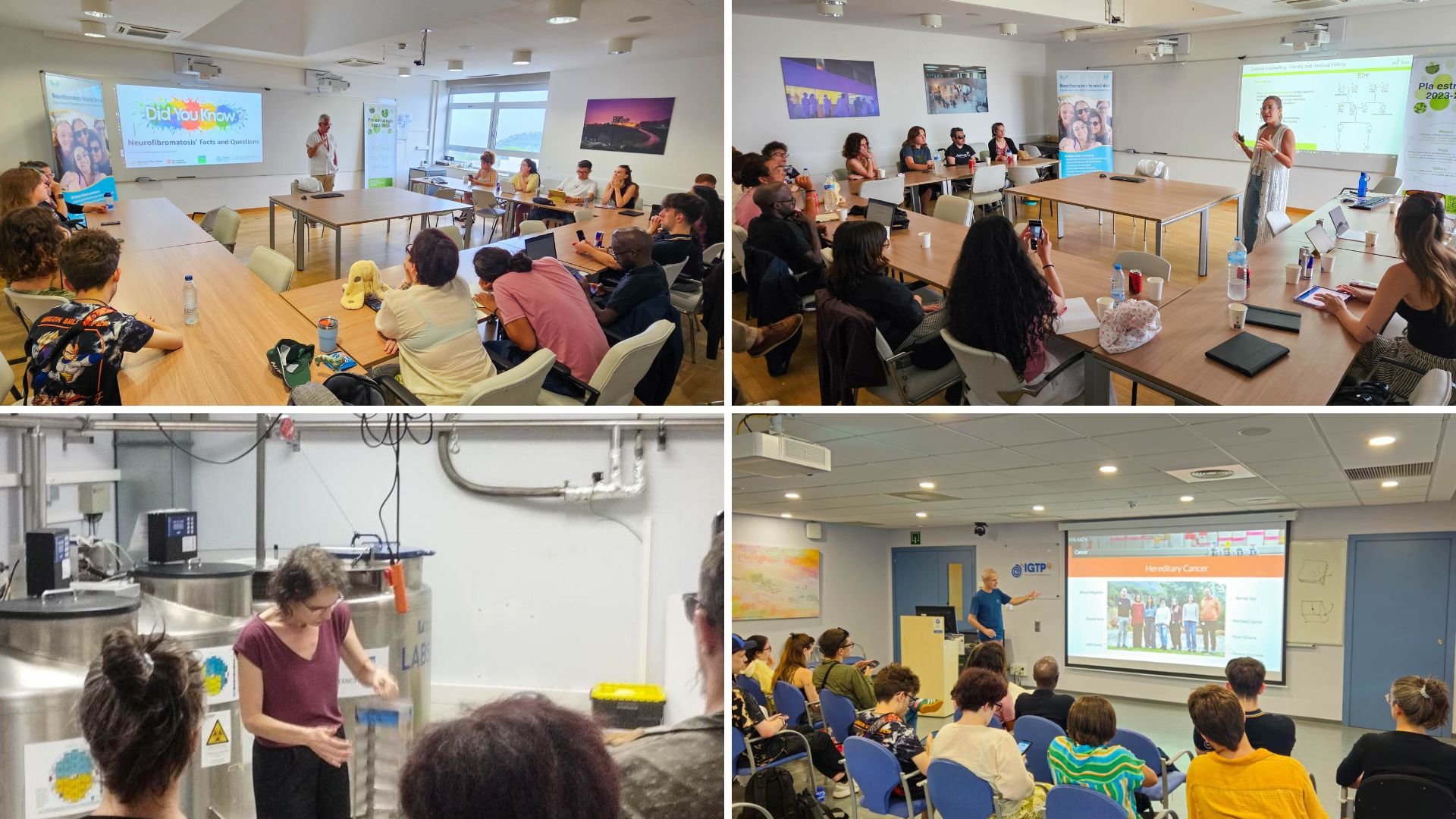Can Ruti welcomes patients and families from across Europe as part of the NF Academy 2025

Neurofibromatosis is a rare genetic condition characterised by the presence of skin spots and benign tumours that affect the nervous system. There are three distinct types: neurofibromatosis type 1 (NF1), with an incidence of one case per 2,500 births; NF2-related schwannomatosis (NF2-SWN), affecting around one in 25,000 people; and schwannomatosis (SWN), with an incidence of one case per 40,000. In Catalonia, it is estimated that there are about 3,250 people living with NF1, 320 with NF2-SWN and 100 with SWN.
For the past four years, young people from across Europe affected by these conditions have gathered annually for a training program organised by Neurofibromatosis Patients United (NFPU), the European network of NF patient associations. The training focuses on Patient Advocacy, with the aim of enabling participants to become leaders and reference figures within their national associations, to support fellow patients, and to represent the interests of patients and families in hospitals, pharmaceutical companies and institutions such as the European Medicines Agency.
Health professionals share their clinical and research expertise in neurofibromatosis
This year's NFPU Young Adults Academy is taking place in Barcelona, hosted by the Catalan Neurofibromatosis Association (ACNEFI). Within this framework, the Germans Trias i Pujol University Hospital and Research Institute (IGTP) yesterday welcomed patients and families with neurofibromatosis from several European countries to share knowledge and experiences on the Can Ruti Campus.
The day began in the morning at the Germans Trias Hospital, where participants attended sessions led by Dr Ignacio Blanco, clinical director of the Clinical Laboratory of Metropolitana Nord, coordinator of the Clinical Genetics Service at the Hospital and leader of the Clinical Genomics Unit (UGC) at IGTP, and by Dr Andrea Ros, genetic counsellor at the Hospital and member of IGTP's research group. Dr Blanco spoke about the clinical mechanisms underlying the different types of neurofibromatosis, while Dr Ros discussed genetic counselling and family planning options. "Sharing this knowledge directly with patients and families not only helps them to better understand their condition, but also provides them with tools to take a more active role in decisions regarding their health", they noted.

In the afternoon, the group visited the facilities of IGTP, where Dr Eduard Serra, leader of the Hereditary Cancer Research Group, and Dr Meritxell Carrió, a researcher in the team, presented the research lines being conducted at the centre and guided visitors on a tour of the laboratories. "Opening the doors of our daily work to the people who are the very reason for our research is truly enriching. Seeing the participants' interest and involvement reminds us why we do this work", they emphasised.
IGTP places particular value on activities such as this, which bring together patients and families, as they strengthen the social dimension of its research and highlight its commitment to those living directly with the condition and who stand to benefit from the scientific advances developed at the institute.
